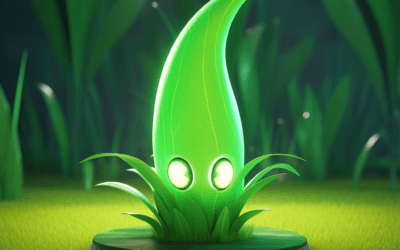The Difference Between Squid and Octopus
What is the difference between squid and octopus?
Squid and octopuses may seem similar as they both fall under the classification of cephalopods, but they do have some key differences. Let’s explore the various aspects that distinguish these fascinating sea creatures.
Physical Appearance
Both squid and octopuses have soft bodies, but their physical appearances differ significantly. Squid have elongated bodies with a distinct head, mantle, and tentacles. They have a pair of large fins towards the back of their bodies, which assist in swimming. However, octopuses have rounded heads connected directly to their bodies, and instead of long tentacles, they possess eight arms. These arms are often equipped with suction cups, which octopuses use for grasping objects.
Squid usually have two longer tentacles and eight shorter arms, while octopuses have equal-sized arms, lacking elongated tentacles.
Tentacles and Arms
One of the notable differences between squid and octopus lies in their tentacles and arms. Squid utilize their two longer tentacles for capturing prey and bringing it towards their mouth. They rely on their eight shorter arms for additional support, to help ensure their food reaches their beak-like mouth.
On the other hand, octopuses use all of their eight arms to both capture and consume prey directly. Their arms possess a more versatile range of movement compared to the tentacles of squid.
Behavior and Lifestyle
Behaviorally, squid tend to be more active and aggressive in their hunting patterns. They are known for their agility in the water and swift movements, enabling them to hunt down prey efficiently. Squid also exhibit schooling behavior, often traveling in groups or shoals.
Octopuses, in contrast, display more solitary behavior. They are well-known for their intelligence and are capable of intricate problem-solving. Octopuses have the ability to change their skin color and texture, allowing them to camouflage and blend into their surroundings effectively. This camouflage technique helps them avoid predators or stealthily approach prey.
Habitat and Distribution
Both squid and octopuses can be found in various oceanic environments around the world. However, they tend to prefer different habitats. Squid are generally found in open ocean waters, as well as shallow coastal areas. Some species of squid are even known to migrate over long distances.
Octopuses, conversely, are more commonly associated with the ocean floor. They inhabit different levels of the sea, from shallow coastal waters to the deep sea. Octopuses are well-adapted to living in tight spaces, such as crevices and burrows on the ocean floor.
Reproduction Strategies
Another difference between squid and octopuses lies in their reproduction strategies. Squid typically have short lifespans and engage in semelparous reproduction. This means that after mating, female squid lay their eggs in clusters and then die. The eggs subsequently hatch, and the young squid grow independently.
In contrast, octopuses have longer lifespans and practice iteroparous reproduction. Females lay their eggs in protected areas, such as rock crevices or caves, and remain near the eggs to guard and care for them until they hatch. The female octopus dies soon after the eggs hatch, but her babies have a better chance at survival due to their mother’s protective efforts.
Culinary Influence
Lastly, squid and octopuses differ in their culinary influence. Squid is widely used in various cuisines around the world, especially in Mediterranean and Asian dishes. It is commonly prepared by grilling, frying, or even used to make calamari. Octopus, on the other hand, is also consumed in specific cuisines like Mediterranean, Japanese, and Korean. It is often cooked by boiling, grilling, or turning it into tenderized dishes like octopus salad.
In conclusion, while squid and octopus belong to the same cephalopod group, they have distinct differences in physical appearance, tentacles and arms, behavior and lifestyle, habitat, reproduction strategies, and culinary utilization. Understanding these differences enhances our appreciation for the diverse and wondrous world of marine life.












